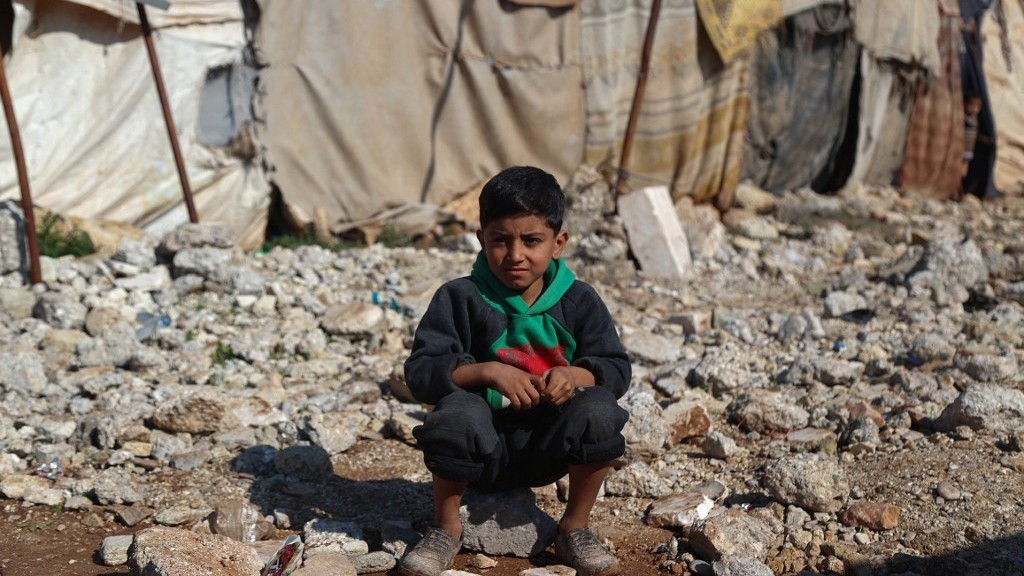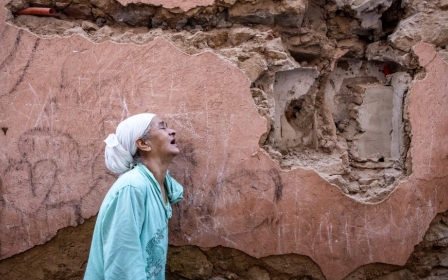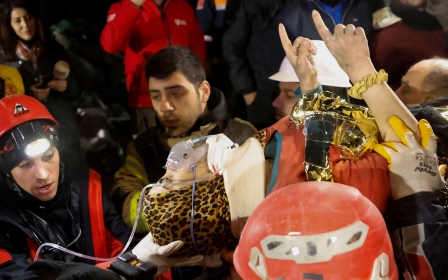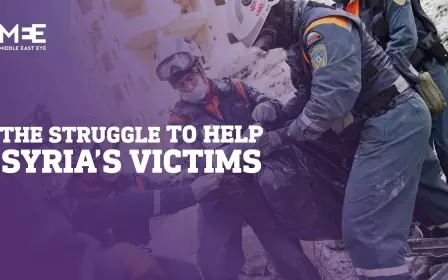Turkey-Syria earthquake: One in three children still homeless a year after the tragedy

One year after the devastating Turkey-Syria earthquake, which killed around 56,000 people, one in three children who were left homeless by the disaster are still living in temporary shelters, according to a report by Save the Children (STC).
The earthquake, which wreaked havoc in southern eastern Turkey and northern Syria, displaced millions and affected around 2.6 million children.
According to the organisation, around 660,000 children in both of the affected countries were forced into temporary settlements after being displaced. This has often meant living in tents or small metal containers the size of a parking space.
Nine-year-old Asli, from Adiyaman in Turkey, told STC that she has been forced to live in a tent with her mother and father since the disaster.
“Sometimes it gets really warm or really cold, that’s why it’s bad. The showers are outside. I would like to have our home back, I would like it if my grandpa and grandma didn’t die,” she said.
Stay informed with MEE's newsletters
Sign up to get the latest alerts, insights and analysis, starting with Turkey Unpacked
Meanwhile, the situation in northeastern Syria, which was also heavily affected by the earthquake, has further deteriorated due to the economic crisis and ongoing war.
Thousands of people in the region have been left without access to their basic needs, including shelter, food and schooling for children.
'Crisis on top of a crisis'
Around 1.5 million more people in Syria need humanitarian assistance this year as a result of conflict and natural disaster, with children being around 45 percent of those in need.
Rasha Muhrez, Save the Children's country director for Syria, said that the country is now “battling a crisis on top of a crisis”.
“The earthquake, the conflict, the economy - now we’re seeing more people than ever in need of support. There are no signs of recovery here yet,” she said, calling for more funding to meet children’s needs.
“Year after year, we see the humanitarian situation deteriorating to new lows. We must refocus our efforts on supporting them and their families to rebuild what they have lost, to live in peace and safety,” she added.
The earthquake has also inflicted a large mental toll on children in Turkey and Syria, who face mental health issues, including anxiety, related to the disaster.
Almost 70 percent of people in government-controlled areas of Syria reported "sadness" amongst children, while 30 percent reported children having nightmares.
STC also stated that 85 percent of the children with disabilities they dealt with reported difficulties interacting with their family members, friends and teachers due to their experiences from the quake.
Studies carried out by the organisation in Turkey have revealed that children displayed changed behaviour following the earthquake, including exhibiting aggressive behaviour and showing signs of anxiety.
Middle East Eye delivers independent and unrivalled coverage and analysis of the Middle East, North Africa and beyond. To learn more about republishing this content and the associated fees, please fill out this form. More about MEE can be found here.




